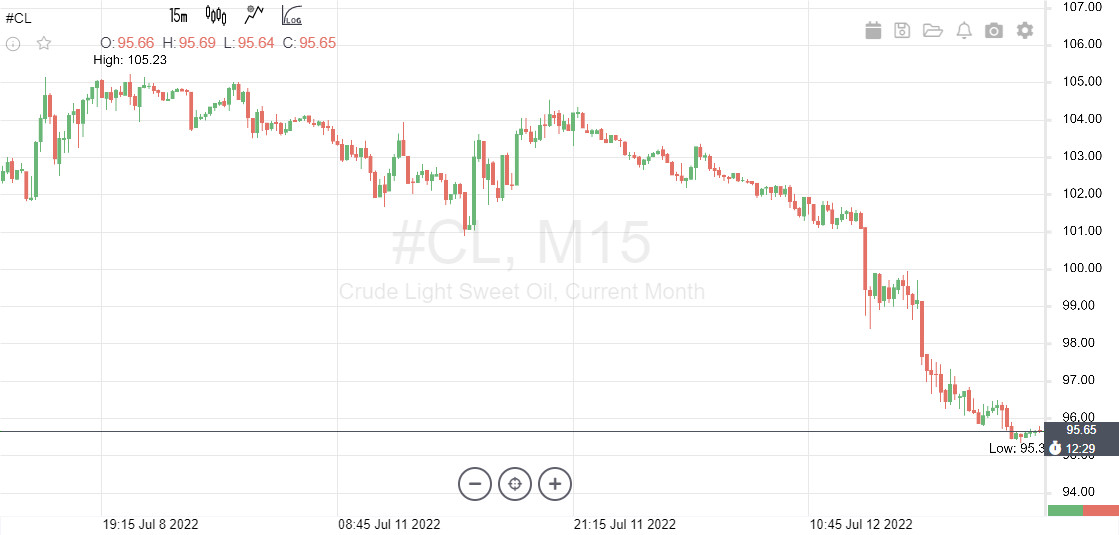
Oil is actively losing value on the news about the next outbreaks of coronavirus in China and on the expectations of a severe economic downturn in the world.
Amid these alarming forecasts, the price of September futures for Brent on the London ICE Futures exchange collapsed by 7.59% by the end of the trading day on Tuesday, to $99.00 per barrel. The price of futures for WTI for August at the electronic session of the New York Mercantile Exchange lost all 8.12% as a result of trading, reaching $95.65 per barrel.
The fall in oil prices is directly related to the pressure from supply and demand that has been manifesting in recent times.

More and more information is coming from China about new outbreaks of COVID-19 and new measures to contain its spread. According to Trading Economics, restrictions on movement have already affected more than 30 million residents of the country. Recall that China is the largest importer of hydrocarbons in the world. If the rampant restrictions that this country is transgressing with again pull the demand for oil to low levels in the coming months, then the price of oil will also be pulled down.
These market fears are intensifying simultaneously with the increasing risk of a global recession, which cannot but affect oil quotes. Traders are confident that the tight monetary policy of most of the world's financial regulators, which, although aimed at curbing rampant inflation, will still cause serious damage to the entire global economy.
Against this background, traders are trying to avoid risk in every possible way, as a result, Asian stock exchanges (with the exception of Japan) closed Monday with a decrease of 0.4-3%. The same thing happened with European indices.
In addition, the market is waiting for the visit of US President Joe Biden to Saudi Arabia. Biden is expected to meet with Saudi Crown Prince Mohammed bin Salman and the leaders of other Arab countries such as Egypt, Jordan, Iraq and the United Arab Emirates and will advocate for an increase in oil production from these countries. However, the reserve capacity of the Organization of Petroleum Exporting Countries is gradually running out, while most producers are still working at maximum capacity. Therefore, it is still not necessary to expect that Saudi Arabia will decide to significantly increase the production of raw materials in the near future, because it is extremely important for Riyadh to maintain the country's reserve capacity in case there is an unforeseen decrease in production.
By the way, oil production in OPEC was noticeably behind the targets in June. The production of ten OPEC member countries that participate in the cartel's plans to gradually raise oil production in June amounted to 24.81 million barrels per day. This is about 1.06 million barrels per day less than the agreed quota for June of 25.87 million barrels per day.
Total OPEC production, including all 13 members of the cartel, increased by 234,000 barrels per day in June to 28.72 million barrels per day. The cartel's member countries Iran, Venezuela and Libya are exempt from the group's quotas.US Treasury Secretary Janet Yellen is currently in Asia, where she is discussing ways to further strengthen sanctions against Russia, including setting limited prices for Russian oil. Recall that the purpose of this is to limit the profits of the Russian Federation and reduce energy prices.
 English
English 
 Русский
Русский Bahasa Indonesia
Bahasa Indonesia Bahasa Malay
Bahasa Malay ไทย
ไทย Español
Español Deutsch
Deutsch Български
Български Français
Français Tiếng Việt
Tiếng Việt 中文
中文 বাংলা
বাংলা हिन्दी
हिन्दी Čeština
Čeština Українська
Українська Română
Română

